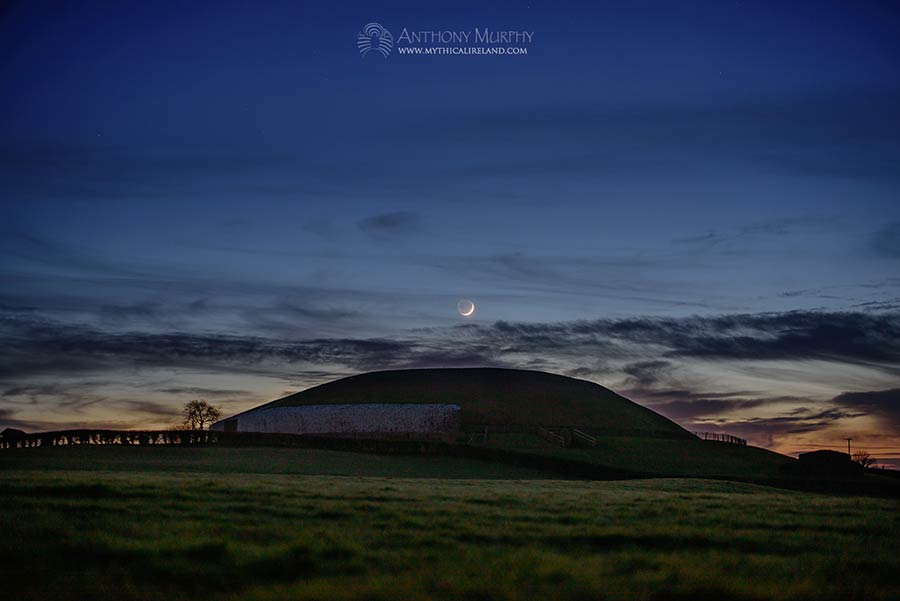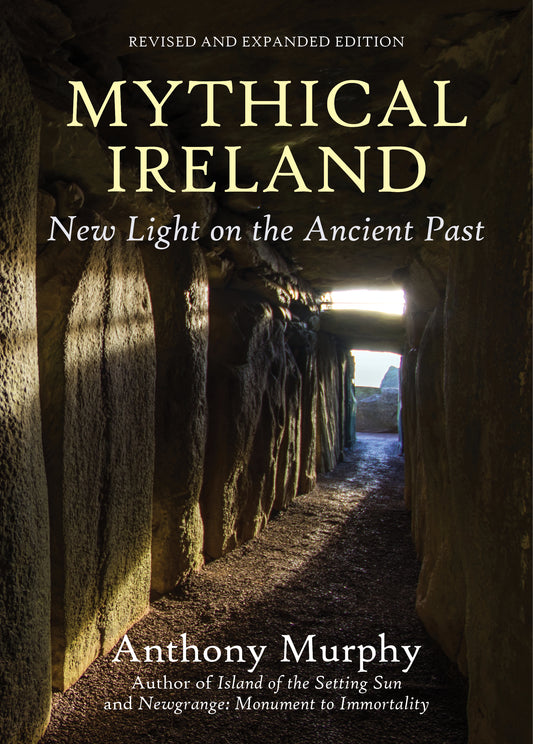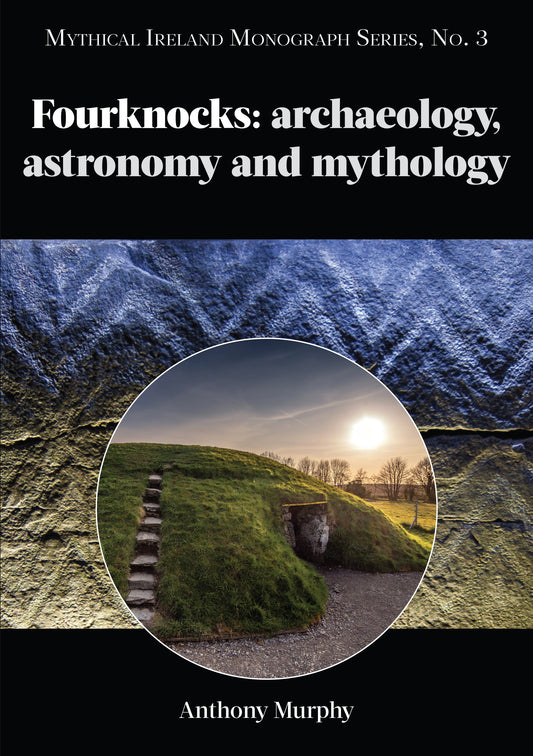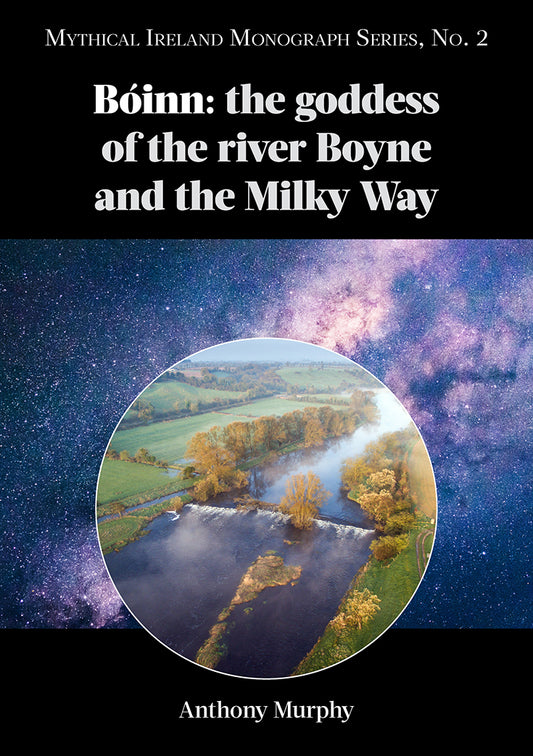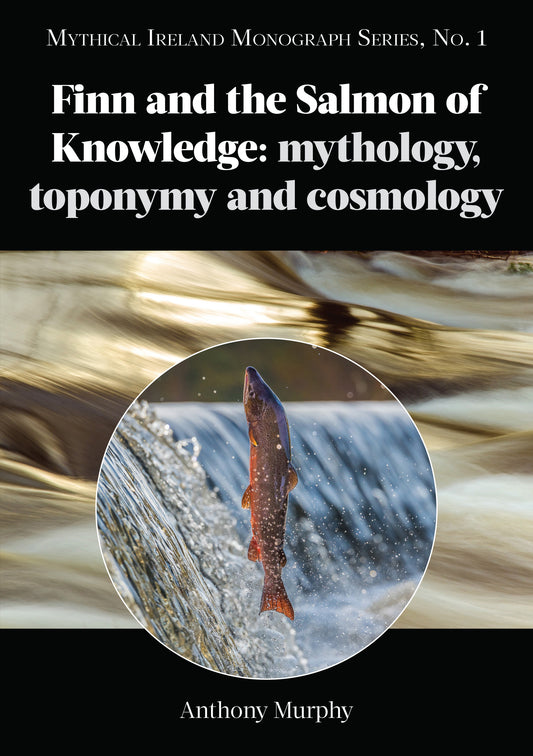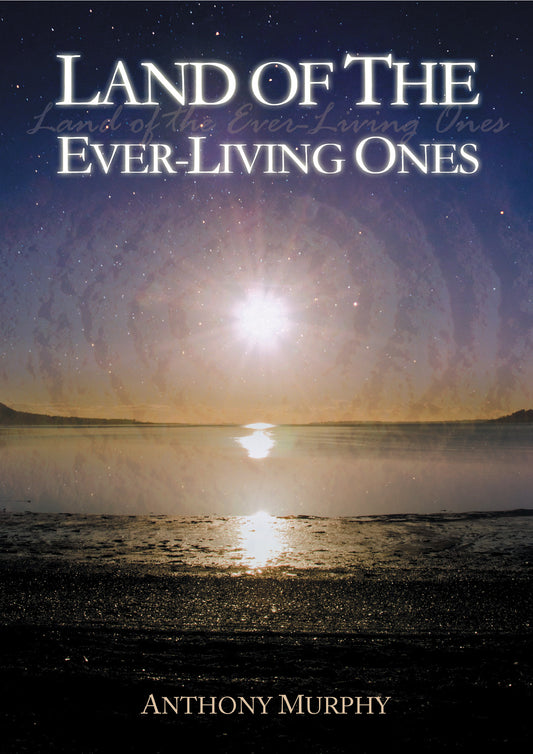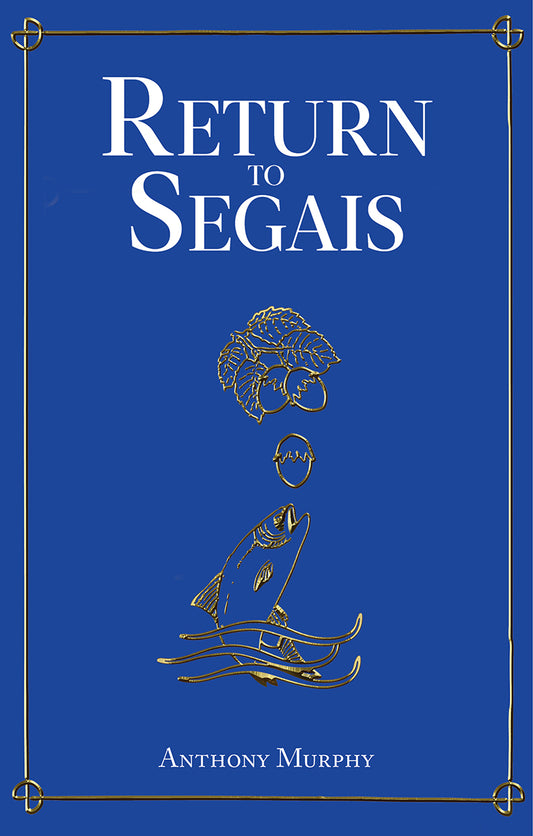The story called Altram Tighe Dá Mheadar (also Altram Tige Dá Medar) is one of the ancient stories which is set at Newgrange (Síd in Broga, Brug na Bóinne) and features tales of the Tuatha Dé Danann. It translates as 'The Fosterage of the House of the Two Drinking Vessels' or 'The Nurture of the Houses of two Methers'. Here follows a summary of this old myth, based on the translation by Lilian Duncan from the original in the Book of Fermoy, with my own notes added.
1. The tale begins with the crowning of Erimon as high king of Ireland. Erimon was one of the Milesian brothes. The Milesians had come from Spain to take Ireland from the Tuatha Dé Danann (TDD). He was the first king of Ireland after it had become known as Eire. There were several battles between the Milesians and the Dé Dananns, including the battle of Druim Lighean, Loch Feabail and the battle of Taillte (Teltown). This appears to set a time frame for the events that are to follow.
2. After Erimon (sometimes also spelt Eremon) and the Milesians had defeated the Tuatha Dé, Manannán (who is described as their high king) counsels the Dé Dananns that they should "spread themselves in the elf-mounds [sídhe], and quarter themselves on the hills and pleasant plains of Ireland". Bodb Derg is made king of the Dé Dananns (but lower in rank, it seems, than Manannán) and then Manannán appoints the various sídhe to the "nobles" of the TDD. These nobles are identified as: Bodb Derg, Midhir, Sighmall, Finnbarr Meadha, Tadg (son of Nuadu), Abhartach, Faghartach, Ilbreac, Lir (son of Lughaidh) and Derg. Interestingly, Derg is given Sidh Cleitigh, which was a mound thought to be located across the Boyne river from the great monuments of Brú na Bóinne, at Rosnaree.
In addition to distributing the sidhe to the TDD, Manannán also grants them three special provisions: The Feth Fiadha - a cloak of invisibility so that they remain invisible to mortals; the Feast of Goibne, "to ward off age and death from the high kings"; the Swine of Manannán – pigs that can be killed for food but continue to exist, as an inexhaustible supply of food (akin to the two swine said to have been kept in Síd in Broga by the Dagda).
The "houses" (sídhe) are to be arranged in the same manner of the houses of the Land of Promise and Emhain Ablach. Emhain Ablach was a paradisiacal island off the coast of Alba (Scotland), and was the home of Manannán mac Lir. (As an aside, the Voyage of Bran began after a mysterious woman presented him with a silver branch with white blossoms from the apple tree of Emain Ablach).
3. Elcmar (also Ealcmar) is introduced to the story. He is described as a magician, and foster-father of Aengus Óg, and the Brugh by the Boyne (Newgrange) was Elcmar's home. It had been arranged with Manannán that there would be a festival or feast at each of the mansions of the TDD. When Elcmar heard that Manannán was making a circuit of all the sídhe, he sent Aengus Óg (also spelt Oengus, Aonghus), son of the Dagda, to invite Manannán to Newgrange. Manannán comes to the "excellent (bright) Sidh an Bhrogha", which is described as being "freshly strewn with rushes before Manannán". Newgrange is clearly a very special place. It is adorned with a copper floor, with white bronze floor coverings, with beautiful compartments of silver, and beautiful key-shaped corners and remarkable melodious birds over these corners.
"The tidings of that house would be almost a book, whoever would relate them... But the powerful ones of the Tuatha Dé Danann, and the nobles of the Land of Promise were all there, and there was not a prince or a lord of them all but felt longing and envy for that house."
4. Elcmar gathers his chief steward, Dichu, and his serving folk, and instructs them to gather fish, birds and venison from the woods and waterfalls of Ireland so that a feast could be made for Manannán. The feast begins. Manannán sits with the warriors, with Bodb Derg to his right, and Elcmar on the left, with all the other worthies and warriors "in fitting and honourable place". Every good food and drink is given to them until they are merry. The feast lasts for three days and nights, and at the end of the fourth day, Manannán asks that the house is cleared out until no-one is left but he and Aengus Óg. Even Elcmar, owner of the Brugh, has to vacate the premises! Manannán tells Aengus the Brugh is a pleasant houoe and that "if I were you, Aengus, I should have this house for myself, and I should call on Ealcmar to leave it". Manannán says that even though Elcmar is Aengus's foster-father, "methinks I am your father in valour and championship and magic".
"Do you know, Aengus, that this house is not rightly Ealcmar's, and the fortress is not worthily his, and that he will not have the Brugh permanently?"
He instructs Aengus that when the drinking house is arranged, he should instruct Elcmar to depart the Brugh.
"... call on him not to come to the house from which he goes until ogham and achu be mixed together, and till heaven and earth be mixed together, and until sun and moon be mixed together."
There follows an obvious Christian intrusion into the myth, in which the "one God Almighty" is described as the one who is able to "condemn our gods". (This is not the only Christian intrusion. The whole story revolves around the conversion of one of the TDD to Christianity.)
Aengus agrees to act on Manannán's advice to urge Elcmar to vacate the Brugh, saying "control is better than sharing".
5. Manannán arrives at the Brugh for the feast hosted by Elcmar. Manannán and his people are enjoying the feast, eating their meal and drinking until all are merry and cheerful, except Aengus, who is filled with dread at the prospect of denouncing his foster-father. Nevertheless, when Manannán orders the proclamation, Aengus proceeds to denounce Elcmar, calling upon him to leave the Brugh without delay.
"After those words that Aengus pronounced to (his) foster-father, Ealcmar arose hastily, dismayed, nimbly, as a timorous, nervous deer rises from a mound on being chased, or as a flock of birds rises before a hawk."
Elcmar proceeds out of Newgrange with all his people, and outside, on the "moist, sloping lawn of the Brugh", he looked at his wife and all his people and apologises to them because they have to part with the Boyne and the Brugh.

"It is treacherous Manannán who taught my foster-son a charm and omen by magic and devilry to banish me, and woe to him who does good to a foster-child after me; I vow by my word," said Elcmar.
Quite magnanimously, he says that if Aengus had sought the kingship of the Brugh from him, we would have given it, without the need for magic or proclamation. Aengus emerges from the Brugh, ashamed of his actions, pleading with Elcmar to stay. But the strength of the charm is such that Elcmar cannot resist, and leaves.
Dichu, the chief steward of the Brugh, having previously served under Elcmar, now agrees to serve Aengus.
6. Dichu's wife was pregnant. Aengus and Manannán both befriend the chief steward. Aengus organises a "festival of the Brugh" for Manannán and the other TDD nobles. Aengus pledges to Dichu and his wife that their child will be fostered by the Tuatha Dé Danann.
Manannán returns to his own fortress (presumably at Emain Ablach). There, his own wife gave birth to a daughter with curly, saffron-yellow hair, and she is baptised and named Curcog (Beehive). Curcog is brought to Aengus for fostering and rearing, and along with her the daughters of other powerful ones of similar age.
At around the same time, the wife of Dichu the steward gives birth to a daughter, who is given the name Ethne. Aengus agrees to rear her. He creates a "beautiful shapely grianán" for the maidens, where he rears them. Grianán is an Irish word which means a bower, summer-house, soller, sunny chamber or conservatory. One of the maidens, Ethne, surpasses all the others in form and charm and modesty, and she was deartest to Aengus. The steward's daughter surpasses even the daughter of Manannán in beauty.
Word of these maidens becomes widespread around Ireland, and the steward's daughter Ethne is the most renowned of them. The nobles of the TDD come to Newgrange to see them. Finnbarr Meadha visits Brugh na Bóinne to see the women. The womenfolk are brought out of the grianán into the presence of Aengus and Finnbarr.
The following is a bit obscure, but apparently in uttering these words Finnbarr insults Ethne. "Who is that who is sitting on her heel? And though I am asking it, it is the steward's daughter who is doing it, and I had like to name her 'heel-sitting'," and he spoke this quatrain:
The royal daughter of the steward,
dear is the gentle stately swan,
It is one of the children of a proper person
who has sat upon her heel (?).
Ethne goes sorrowfully and anxiously to the grianán. Aengus, having seen Ethne insulted, gets angry with Finnbarr and orders that he and his people should be killed. But he relents, recalling their friendship, and Finnbarr gets down on his knees in the Brugh asking for forgiveness. They kiss and make up. After this, they sit down for a feast, including Finnbarr and his chiefs, and Curcog and Ethne. There is plenty of food and drink, but Ethne will neither eat nor drink. The feast lasts for three days and nights before Finnbarr departs.
7. However, Ethne goes for seven days and nights without food or drink. Aengus asks if she will consider drinking the milk of his dun cow, milked in a "shapely mether of gold". The cow is described as being unique except for one other cow, which is Manannán's speckled cow. These two cows had been brought to Ireland by Aengus and Manannán from India. They were magic cows with a constant supply of milk. Ethne agrees to milk the dun cow herself, with a special silken spancel and mether of gold. She and Aengus drink the milk. The milk of the cow is the only food that Ethne partakes in, but is all the food and drink she needs.
8. In an effort to find out why she won't eat or drink anything else, Manannán calls for Curcog and Ethne to be brought to his home in Emhain Ablach. Manannán brings the two women to a place of solitude and asks Ethne why she doesn't eat food. "I do not know, indeed," said Ethne, "except that after the same I received from Finnbarr, I could not eat any food in the world but the milking of Aengus's dun cow, and I myself milking it into a golden mether." Manannán says he will prepare a meal for Ethne, and urges his chief steward to put the most excellent flavour into the food for her. Ethne declines all the fine food that Manannán offers, but she agrees to milk Manannán's speckled cow with a golden mether and silver spancel, and drinks the milk so long as she is there.
Then Manannán has a realisation. He says that Ethne is not of Aengus's people at all, ie the TDD. "For when Finnbarr gave the insult to that maiden, her accompanying demon went (from) her heart and an angel came in its stead, and that does not let our food into her body, and she will not revere magic or wizardry henceforth, and it is for that reason she drinks the milk of that cow, for it was brought from a righteous land, i.e. India, and the nurture and fosterage of that maiden will be talked of for ever by every one, i.e. the Nurture of the Houses of two Methers, and it is the ... three-personed Trinity which will be the God of worship for that maiden," said he.
9. After six weeks at Emain Ablach, in which she drank only the milk from the speckled cow, Ethne and Curcog and the other womenfolk depart Emain Ablach to return to Sidh an Broga. Aengus meets them at the Boyne and asks Curcog what Ethne ate and drank. Curcog tells him she ate or drank nothing except the milk of Manannán's speckled cow. Aengus asked if Manannán knew the reason for this.
"He did indeed, said Curcog, "and said thus, that it was the one All-powerful God caused her not to eat the food of the Tuatha Dé Danann, and said that, when Finnbarr gave offence to the maiden, she parted from her magic, and that an angelic spirit came into the place of her mind, and he said that is the cause of her abstinence, and that she is of no other people but of the true people of the All-powerful High King."
The nurturing of the woman by the milk of the two magic cows was apparently cause for great celebration in Ireland. "The nurture of that maiden was celebrated throughout Ireland among the Tuatha Dé Danann, and among the sons of Mil, i.e. the Nurture of the Houses of Two Methers, and it is still called the Fosterage of the Houses of Two methers, and that nurture is still proverbial and will be for ever".
10. Christianity has arrived in Ireland, through the Tailginn (adze-head, another name for Saint Patrick). Patrick has banished druids and demons from Ireland. Curcog and the womenfolk were on the lawn of Brugh na Bóinne in summer. Because of the heat, the women go to swim in the Boyne. Afterwards, they leave the river and go towards their clothes. Ethne did not notice the women going away, and the magic of the Feth Fiadha leaves her, so that she id not see the womenfolk, but everyone would see her. She looked for the other women along the Boyne but could not find them. She encounters a cleric in a graveyard. She tells him that she has been of the Tuatha Dé Danann until now, but "in future you and I will be of the same people". Ethne asks the cleric to teach her his ways. He encourages her to recite the psalter religiously.
11. Ethne reads the psalter devoutly. They appear to enter a life of religious devotion together. The cleric brings a beautiful salmon to the house. There is not enough for both of them, so he goes to fish another. He was not long fishing when he caught a very beautiful salmon, of which "he had never seen the like". They eat the salmon together.
The other women, who were swimming, cannot find Ethne. They went to Aengus to tell him about losing her. Aengus and Curcog go in search of Ethne. He visits every fortress in Ireland but cannot find her. He returns to the Boyne and sees an oratory and a dwelling on the other size of the river. Ethne sees Aengus and Curcog, but the priest cannot see them because they have the Feth Fiadha over them.
12. The priest prays to the Lord that Patrick should come and help him, and prevent Ethne being taken away from him against his will. His prayer is granted, and Patrick arrives at the door of the oratory with his clerics. A conversation takes place between Patrick and Aengus. Aengus asks if he can take his foster-child with him. Patrick says that Ethne is not his foster-child at all, "but of the God of the elements". Aengus threatens to take her by force, but Patrick urges him not to. Patrick suggests Aengus be baptised, but Aengus declines. He leaves gloomily, saddened that his beautiful foster-child has been taken away.
Sad to me the coming of this Tailginn
into this land, we will conceal it not;
to go away form the one I leave,
but though it is difficult, let us do it.
Ethne is baptised by Patrick. She hears a cry of lamentation from Aengus and becomes ill. She was sick for a fortnight afterwards. She knew she was going to die. She petitions God and Patrick to protect her soul.
Though there be many cries and weepings
among the womenfolk of the Brugh,
I prefer the cry of clerics round my head,
protecting my soul from Hell.I thank the Christ of the peoples
for (my) parting from the Tuatha Dé Danann;
Though I am of them, I am not of them,
I believe in Jesus the High King.
After that, Patrick takes the maiden's head in his bosom, and she dies. She is buried "honourably" by them at a place called Ceall Ethne at Brugh of the Boyne.

